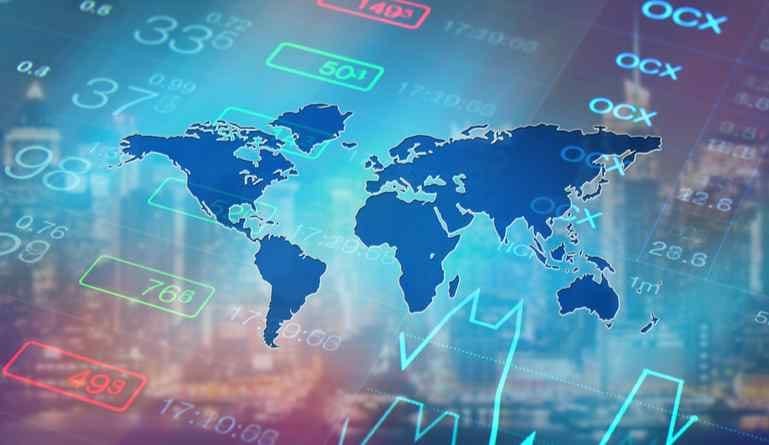
Impact of Government Policies on Business Operations
Government regulations, taxes, and fiscal policies significantly influence both local and international business activities. They play a critical role in shaping the landscape of business and the international economy. These policies set the operating conditions for businesses by establishing the legal and economic frameworks they must operate within.
Regulatory measures, such as environmental standards, labor laws, and safety regulations, ensure businesses contribute positively to society and protect public and environmental health. However, compliance with these regulations can introduce complexities and additional costs, potentially impacting operational efficiency and profitability. For example, stricter emissions standards may require manufacturing and transportation companies to invest heavily in cleaner technologies.
On the taxation front, corporate tax rates and tax incentives can either encourage or discourage business investment. Lower corporate taxes can attract foreign investments and stimulate economic growth. High taxes might push businesses to relocate to more tax-friendly environments. Fiscal policies like government spending and subsidies also play a significant role in economic stabilization. This can drive business growth in targeted sectors.
Internationally, businesses must navigate a complex web of different national regulations and tax regimes. This complexity can influence decisions about where to locate production facilities, how to structure global operations, and the best ways to manage supply chains. Effectively managing these factors is crucial for maintaining competitiveness in the global market.
Moreover, changes in government policies can pose risks or create opportunities for businesses. Agile and informed companies can adapt their strategies to mitigate risks and capitalize on new opportunities. For instance, a global shift towards renewable energy policies has led many energy companies to adjust their business models toward sustainable energy sources.
Global Trade Agreements and Economic Blocs
Global trade agreements and economic blocs significantly shape business and the international economy. Agreements like the North American Free Trade Agreement (NAFTA) and the European Union (EU) establish frameworks that facilitate the international flow of goods, services, capital, and labor. Their impact profoundly influences global trade dynamics, economic growth, employment, and consumer prices.
NAFTA, for example, was key in removing most tariffs between the United States, Canada, and Mexico, boosting trade significantly. This agreement enhanced business efficiency by reducing the costs of exporting goods and sourcing materials across these borders. Its recent update, the United States-Mexico-Canada Agreement (USMCA), addresses contemporary issues like digital trade and intellectual property rights. This reflects how these agreements adapt to changing economic landscapes.
The European Union extends beyond typical trade agreements by economically integrating its member countries. This integration allows free movement of people and adopts the euro as the currency for 19 of its 27 members. Such integration not only boosts trade but also fosters investment and stabilizes the region economically and politically.
Additionally, economic blocs like the EU set standards and regulations that members must follow, impacting global business practices. For example, the General Data Protection Regulation (GDPR) extends beyond the EU, affecting international data protection practices.
Political Risk and International Business
Political risk is a significant factor in international business, influencing how companies strategize and operate within foreign markets. The stability of political systems, the predictability of policy changes, and the nature of international relations can either pose risks or offer opportunities to businesses engaged in the global marketplace.
Political instability, such as sudden government changes, civil unrest, or conflict, can disrupt business operations and affect market conditions. Companies operating in regions with high political risk may face challenges. This includes the expropriation of assets, currency fluctuations, or disrupted supply chains. For example, a coup or significant political protest can halt production or close markets temporarily, impacting profitability and operational efficiency.
Moreover, policy changes in areas like trade regulations, taxation, or labor laws can require businesses to quickly adjust their strategies. A new regulation imposing tariffs on imported goods could force a company to rethink its supply chain logistics to maintain profitability. Similarly, stricter environmental regulations may lead businesses to invest in cleaner technologies. This affects their short-term financial goals but potentially benefiting them in the long run.
International relations also play a crucial role in business and the international economy. Diplomatic relations between home and host countries can affect business significantly. For instance, favorable diplomatic ties might result in trade incentives. Strained relations could lead to restrictions or sanctions, impacting international operations.
To mitigate these risks, companies often employ risk assessment tools and strategies. These might include diversifying markets to avoid over-reliance on politically unstable regions or hedging against currency risks. Moreover, developing strong local partnerships and maintaining a flexible approach to manage sudden political or economic changes are crucial.
Economic Sanctions and Trade Barriers
Economic sanctions and trade barriers are significant aspects of business and the international economy that directly impact global commerce. These measures are typically used by governments to exert political pressure, punish undesirable actions, or protect domestic industries from foreign competition. However, they also pose substantial challenges for businesses engaged in international trade.
Sanctions can restrict a company’s ability to export or import goods, access international markets, and secure financing from global banks. For instance, firms in countries facing broad economic sanctions may find themselves cut off from crucial markets. This would severely impacting their sales and overall business operations. Additionally, companies in non-sanctioned countries might need to avoid transactions that could indirectly involve sanctioned entities. This can complicate trade and investment decisions.
Trade barriers such as tariffs, quotas, and embargoes also affect businesses. This is because they increase the cost of imported goods or limiting the amount that can be imported. These barriers can force companies to raise prices, which may lower demand and reduce profits. To navigate these barriers, businesses often have to alter supply chains, source goods from alternative markets, or even establish new manufacturing facilities in countries not subject to such restrictions.
Moreover, businesses must stay agile and informed about the international political landscape to manage these risks effectively. This involves maintaining compliance with international legal standards and engaging in strategic planning to mitigate the effects of potential sanctions or barriers. For example, companies might diversify their markets to reduce dependency on any single country or develop flexibility in their sourcing and logistics to quickly adapt to new trade realities.
Foreign Direct Investment (FDI) Trends
Foreign Direct Investment (FDI) trends are a crucial indicator of shifts in the business and the international economy, showcasing which regions and sectors are most dynamic and attractive to investors. Over recent years, trends in FDI have reflected broader global economic shifts, with developing economies gaining a larger share of global investment flows. Developed regions continue to compete for capital by offering stable and innovative environments.
Asia, particularly East and Southeast Asia, has seen significant growth in FDI. Nations like China and India have become hotspots due to their large consumer markets, improving infrastructure, and supportive government policies. Meanwhile, sectors such as technology, renewable energy, and healthcare are attracting substantial investments globally. These sectors promise high growth potential and align well with broader economic trends focusing on innovation and sustainability.
In contrast, regions like Latin America and parts of Africa, while improving, face challenges that moderate their FDI inflows. Political instability and infrastructural deficits can deter investors, despite the promising prospects these regions hold due to their natural resources and burgeoning consumer markets. However, targeted investments in specific countries that have undertaken reforms, such as Rwanda and Chile, demonstrate that effective policy and a stable environment can attract significant FDI.
Moreover, the recent global emphasis on sustainability has directed more FDI into green and sustainable projects. Investors are increasingly mindful of the environmental impact of their investments and are channeling funds into ventures that support a transition to a greener economy. This trend is not only prevalent in developed nations but also in developing countries, where sustainable investment is seen as crucial to long-term growth.
Role of Multinational Corporations in Shaping Global Policy
Multinational corporations (MNCs) play a pivotal role in shaping business and the international economy through their influence on international economic policies and the economies of the countries in which they operate. These corporations, with their extensive resources and global presence, have the capability to affect policy decisions on trade, labor standards, and environmental regulations.
The economic impact of MNCs on local economies can be profound. By establishing operations in multiple countries, they create jobs and spur economic activity. This can lead to significant improvements in local industries and infrastructure. For instance, when a multinational sets up a manufacturing facility in a developing country, it not only employs local workers but often enhances the local supply chain and technology standards as well.
Moreover, MNCs frequently engage in lobbying activities that can influence international trade policies. Their interests often guide discussions on tariffs, trade agreements, and regulatory frameworks. While this can lead to more favorable business environments, it also raises concerns about the dominance of corporate interests over national policies. This is especially true in less economically powerful countries.
Additionally, MNCs contribute to shaping global standards across industries. Through their operational practices, they set benchmarks for everything from product quality to labor conditions. This influence can drive positive changes, such as higher safety standards and better environmental practices globally. However, it can also lead to criticisms, especially if corporations push for standards that primarily benefit them at the expense of smaller local businesses.
Conclusion
In conclusion, the intricate relationship between business and the international economy is profoundly influenced by numerous factors. These include governmental policies and multinational corporations’ activities. The dynamism of global trade agreements, economic sanctions, and foreign direct investment trends exemplifies the global market’s interconnectivity and susceptibility to various economic forces.
Understanding these elements is crucial for businesses aiming to thrive in this complex environment. As companies adapt to the constantly evolving landscape of international trade and investment, they must also weigh their impact on global economic policies and the ethical implications of their decisions.
Furthermore, the continuous development of technology and operations management tools offers businesses new ways to enhance efficiency and sustainability. However, these advancements also pose challenges, especially in maintaining competitiveness and adhering to global standards.
Overall, businesses play a critical role in both shaping and being shaped by the international economy. This underscores the importance of strategic planning and informed decision-making. Moving forward, businesses’ ability to anticipate changes and adapt strategies will determine their success in the global marketplace. Thus, staying informed and responsive to the shifting paradigms of the international economy is crucial for any business seeking a competitive edge in today’s market.


